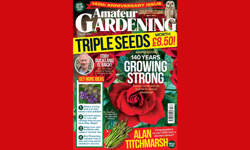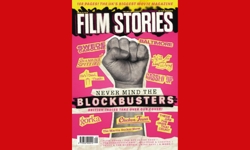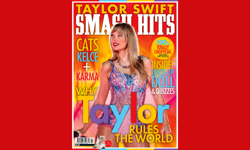Fretting about that rumoured merger? Scrambling to find a seat in the digital life boat?
Not to worry. There’s a ready lifeline for editorial types aspiring to continue earning a living: the wonderful world of branded content.
The first key is ridding oneself of outmoded, career-limiting self-descriptions like “editor”, “reporter” or (God forbid) “journalist”, in favour of the far-more-relevant, flexible and marketable “content generator”.
Yes, you may well be marked for extinction if you’re in the shrinking pool of those still employed to do actual reporting, writing or editing of “independent” articles or columns. (Particularly if you have any level of experience at this, which means that you might be making a living wage, and are thus ipso facto an overhead liability.)
On the other hand, the odds are excellent that you’re employed by a media company that’s engaged in, or gearing up to engage in, one or more of the proliferating varieties of sponsored content, aka native advertising. This creates whole new categories of opportunities, including editing — or writing — that sponsored content.
Even if you’re among the unlucky few working at a media entity that’s misguidedly stuck on a suicidal course of eschewing branded-content revenue strategies — or one that’s still trying to preserve an appearance of some demarcation between editorial and sponsored content — you have viable options.
Option one: You may be able to transition to being paid by your former employer — and / or the growing number of other media outlets eager for the talents of journalists - turned-brand marketers — to perform these functions on a freelance (no overhead, benefits etc) basis.
The same basic strategy applies if you’re already a freelancer, but finding that traditional paid assignments are dwindling (what with the content holes now being filled by advertiser-sponsored / contributed articles, plus dirt-cheap / free contributions from desperate, unemployed college graduates).
Just look around — these opportunities are everywhere. It’s not just revered magazine brands (Forbes, the Atlantic et al) but newspapers, as well. Heck, the Washington Post — currently celebrating / publicising the 40th anniversary of its having toppled a US president through its Watergate investigative reporting coup — has now reserved prime positioning on its website’s home page for brand-sponsored content. (The Post says its advertising, rather than editorial, staff will provide “editorial services” for sponsors that don’t want to create content themselves — no doubt by hiring former staff writers turned branded-content guns-for-hire.)
Or get this: In a clever new twist, Time Inc’s Fortune has launched Fortune TOC (for “Trusted Original Content”). Marketers will pay between $250,000 and $1 million to have the magazine create original, Fortune-branded editorial content that they then distribute on their own platforms (not Fortune’s), however they see fit. It’s like licensed content (itself a burgeoning revenue stream for many vaunted media brands), except it’s tailor-created to appeal to the interests of the specific audience segments being targeted by the brand marketer. No grubby, outright pitch for the product / service: as with other sponsored content, the goal is to engage and build relationships with brand prospects / customers, and parlay that into loyalty and purchases over time.
Now, don’t get the wrong idea. Fortune’s editorial team will edit these pieces, but they’ll be written by “trusted” freelancers — meaning ones previously paid by Fortune to contribute traditional editorial articles. (Interestingly, these writers’ identities are being kept under wraps.) Time Inc stressed that, once an advertiser agrees to the topic and format (article, video, blog, newsletter, etc), it will not see the content until it’s finished, and the editors will have final say over the content.
“Nothing we’re doing is compromising editorial integrity”, stressed Paul Caine (just prior to leaving his Time Inc chief financial officer post to become CEO of an audio-content syndication venture). Now that marketers have all become publishers themselves, it’s a no-brainer for media outlets to offer them the ability to “populate their owned and earned media with our content”, he explained. A group publisher clarified further: “It’s not advertising; it’s not native advertising… all it is is a new distribution vehicle for Fortune content.” (Aah… light dawns!)
Career option two: Snag one of the rapidly growing number of content positions opening up at all those product / services marketer companies that have indeed become publishers themselves. This is the ideal, since, according to those who’ve made this move, it’s just like working for a media company — except with better pay and bigger budgets!
These recruits say that the stigma once attached to moving from editorial to PR doesn’t apply in the branded-content realm. As the New York Observer summed up in a recent piece (must-reading for content generators), “Because the content is sponsored by a brand but not directly about it… evangelists for branded content say it’s not a huge jump from writing for a magazine that has to be careful not to offend advertisers.”
Indeed, some now writing / editing lifestyle or “thought leadership” blogs and web magazines owned by brands like Urban Outfitters, Coca-Cola, Qualcomm, Intel and Degree men’s deodorant insist that there’s not only zero pressure to push these brands in the content; they feel more freedom and less pressure to generate traffic than they did at media outlets dependent on driving advertising and subscriber revenue. Not to mention more financially secure.
As for freelancers, there’s now a booming business in ventures that match writers that once bylined pieces for big-name magazines / newspapers with brands vying to harness their talents. A journalist turned founder of one of those services, Contently, told the Observer: “Thirteen years ago, I was very religious about journalism — even five years ago, I wouldn’t have done it. But once people realise that [brand-owned content] is still journalism, they become more okay with it.” PS: More than 10,000 journalists - oops, content generators - have signed up to seek freelance work through Contently.












